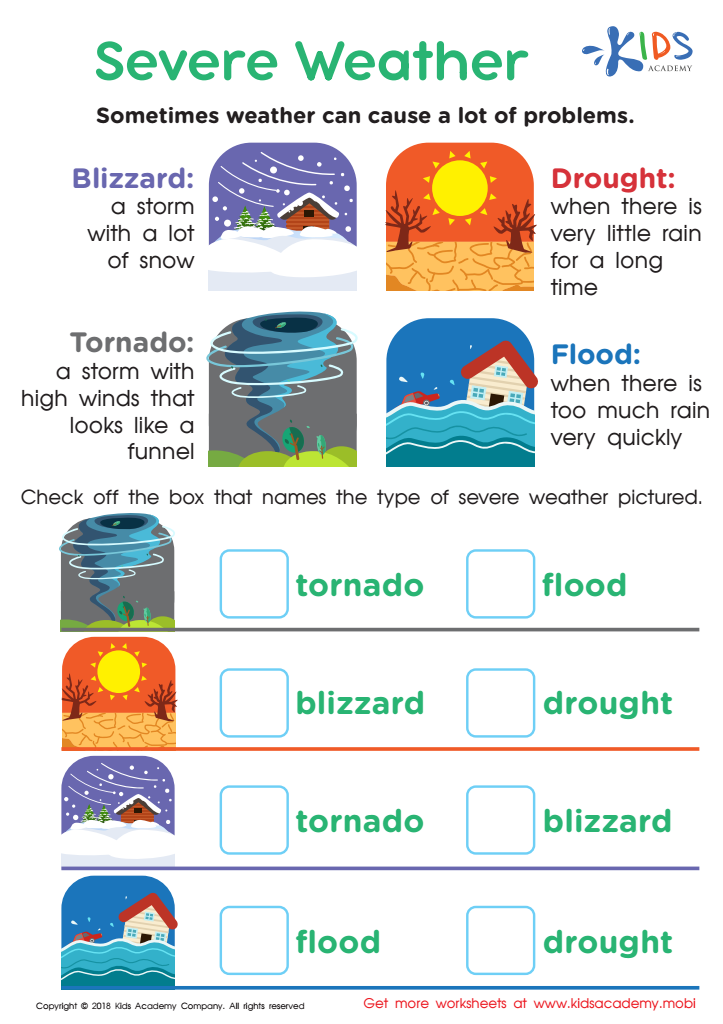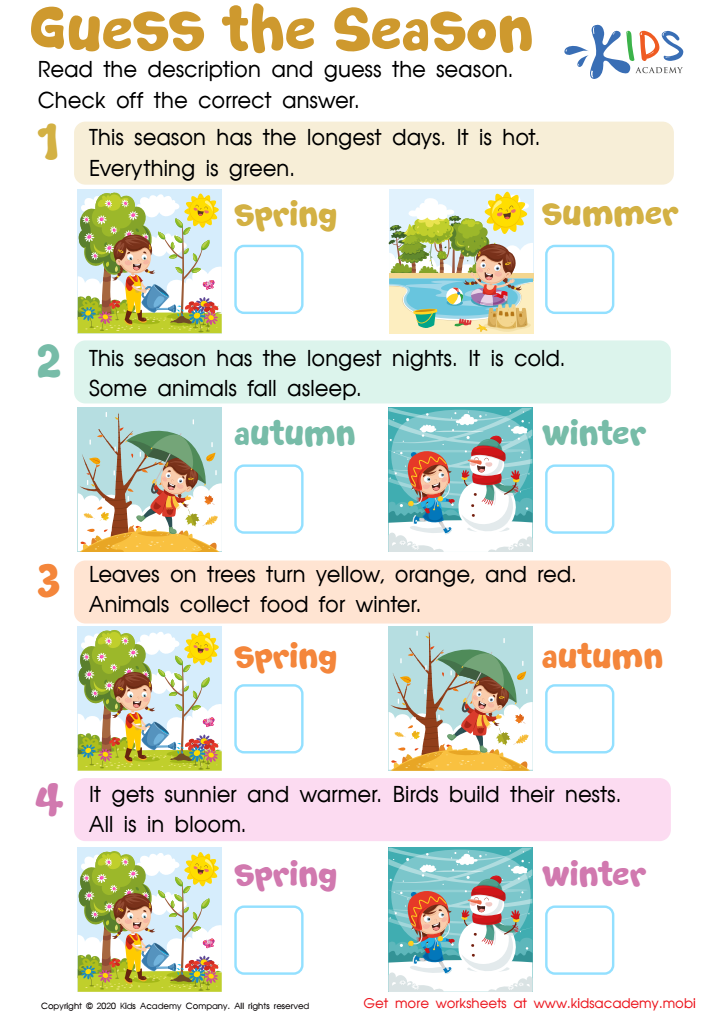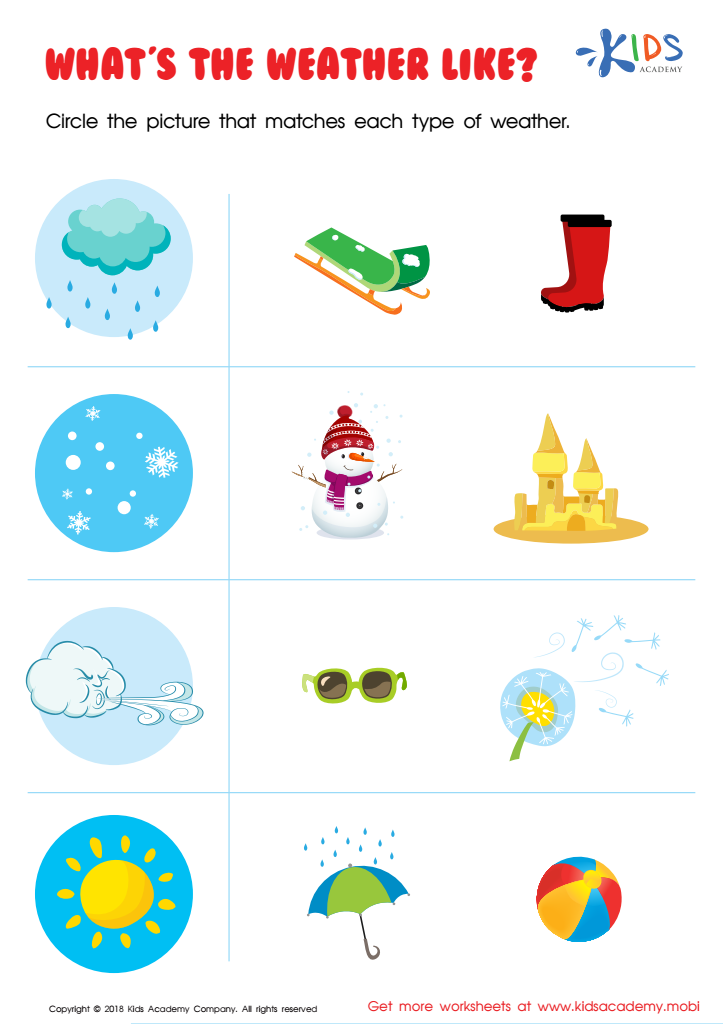Vocabulary Building Normal Weather Worksheets for Ages 4-9
3 filtered results
-
From - To
Ignite your child’s curiosity while expanding their vocabulary with our engaging Vocabulary Building Normal Weather Worksheets designed for ages 4-9. These expertly crafted worksheets combine vibrant illustrations and fun activities to help young learners grasp weather-related terms effortlessly. Each exercise encourages the development of key reading and comprehension skills through interactive word matching, fill-in-the-blank, and picture labeling tasks. By focusing on common weather conditions, these worksheets make learning about the environment both educational and enjoyable. Ideal for at-home learning or classroom use, these tools are perfect for fostering a love of science while boosting your child’s vocabulary. Unlock your child's potential today!


Severe Weather Worksheet


Guess the Season Worksheet


What's the Weather Like? Worksheet
Vocabulary building in topics like normal weather conditions is crucial for children ages 4-9 as it forms the foundation for their language development, comprehension skills, and general knowledge about the world. Early vocabulary acquisition helps children improve their ability to communicate effectively, express their ideas, and understand others. Introducing weather-related terms, such as sunny, cloudy, rainy, and windy, enhances their observational skills and helps them articulate their experiences and surroundings.
Understanding weather vocabulary aids in cognitive development by engaging children in learning about natural phenomena, patterns, and cause-and-effect relationships. When children can correctly identify and talk about the weather, it strengthens their scientific curiosity and lays the groundwork for more complex learning in subjects like geography and science as they grow older.
Teaching weather vocabulary also supports social-emotional learning. Children feel more confident and competent when they can use specific words to describe their environment and emotions, e.g., feeling happy on a sunny day or sad on a rainy afternoon. Parents and teachers can capitalize on daily weather observations to naturally and contextually expand these conversations, reinforcing learning through real-life contexts.
In essence, focusing on weather vocabulary enhances both language and cognitive skills, fosters curiosity, strengthens communication abilities, and supports overall learning and understanding of the world for young children.
 Assign to My Students
Assign to My Students















